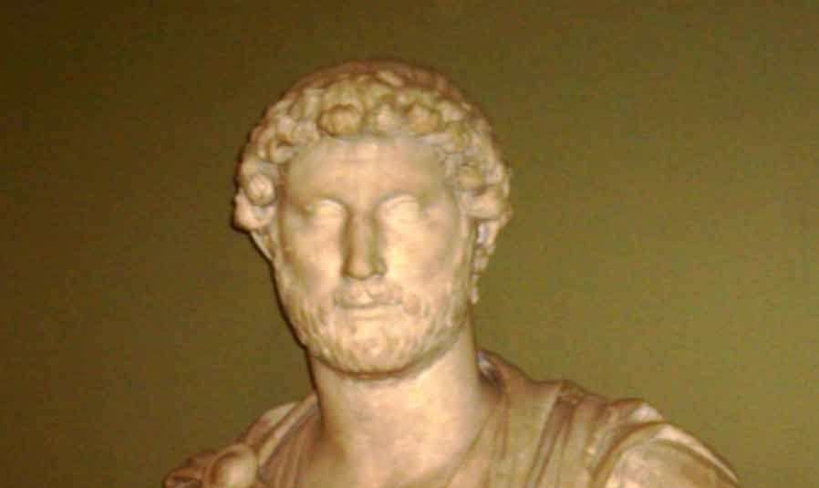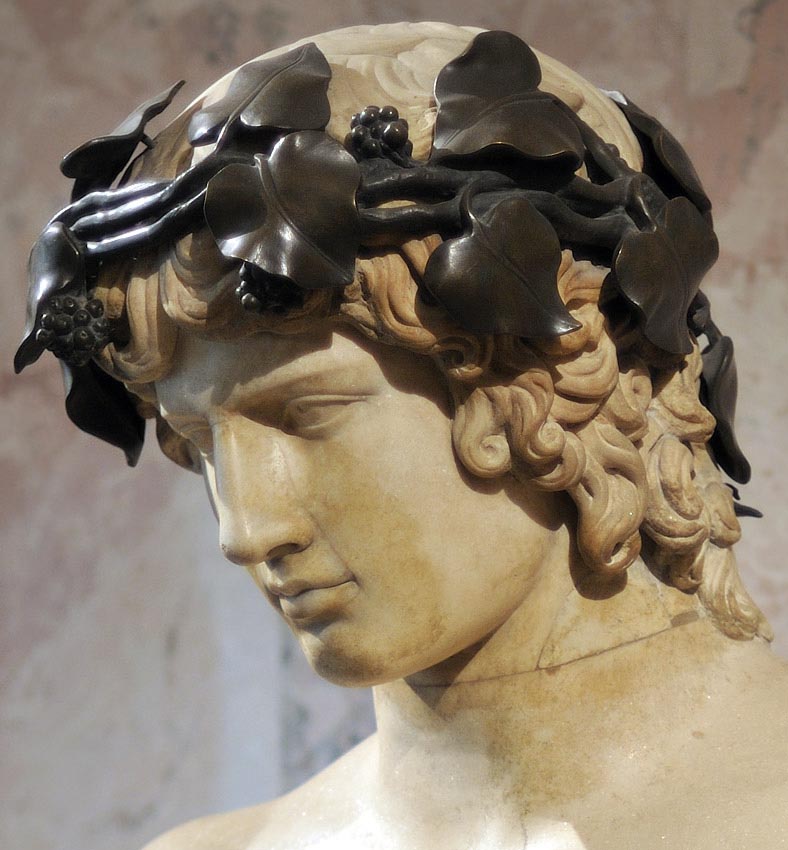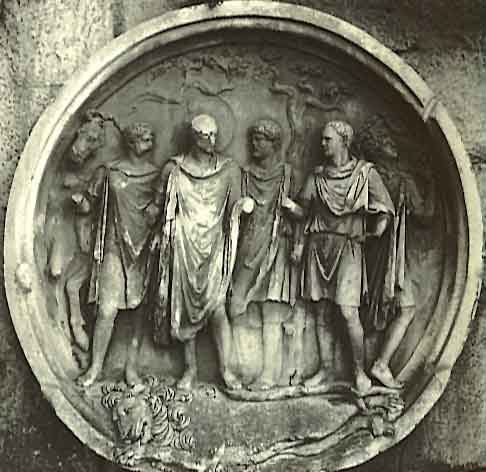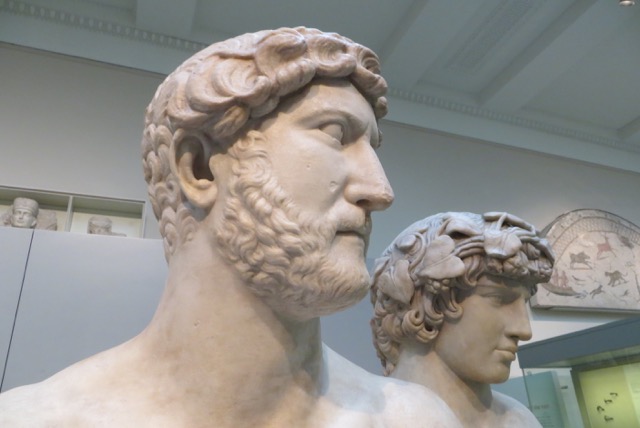As I start to write this post (and may not, thus, finish it before this day ends where I’m at), it is March the 17th. On my own liturgical calendar, this is one of the most packed days of the year, with four different festivals in four different (but not mutually-exclusive, thankfully!) cultures and/or practices. (For those playing along at home, it was the Roman Liberalia, the Irish Anglonnfhled [“Hero-Feast”] of Cú Chulainn, the Thraco-Graeco-Roman Kottytia, and the Tetrad++ic Birth of Pancrates of the Tetrad++.)
On various occasions over the past near-twenty-years that I’ve been observing one or more of these festivals on this date, it has been a rather major occasion. On some of the best of them, I’ve been in the presence of friends, colleagues, and co-religionists celebrating an amazing day filled with Deities and Their devotion; on some of them, other things have prevented major observances, but these occasions have been marked in at least some fashion or other; on still other occasions, the rumblings of quite awful things have begun to appear as cracks have formed in various matters that I had assumed were “stable” before that. Thus, on a day that is traditionally one of great revelry and parties–at least in the U.S. and in Ireland (the two places I’ve lived the most!), we are currently in a worldwide situation in which the requirements of “social isolation” and “social distancing” (which should REALLY be called “physical distancing/isolation”!), it behooves us all to pause and reflect on what is realistic, what is preferable, and what is possible.
I spoke with various friends, colleagues, and co-religionists today about the situation, and all of us were in “triage” mode, as it were, for some reason or another. Being one of the non-elderly but extremely at-risk individuals in the COVID-19 pandemic, since I have multiple underlying conditions–any single one of which could make what is just a bit of severe flu for many people quite dangerously deadly–I am having to be especially careful with how I conduct myself in public, if at all, and what I am doing at-home to reduce the risks of infection. Many other transitions I’ve had to endure in this process over the last week have not been too difficult, since my “for-pay” work easily translates into a work-at-home situation with little to no trouble. However, the very moment that the orders came down to self-isolate last week made me suddenly become my most contrarian self, wanting to just run outside naked and get in a hot tub with anyone I meet or some such stupid thing that might be fun for a moment but which could have potentially deadly aftermaths.
Thus my recent consideration of “small/trivial things” and what the Deities think of them was not entirely a theoretical matter of theological consideration. The twenty-second difference of washing one’s hands now might literally mean life or death for one of us or for someone we know and love…and that is no exaggeration, sadly.
The virus can last no more than nine days, at least according to the most recent scientific reports, on a surface…and you have no idea if the person who stocked the shelves where you just bought forty packages of toilet paper coughed all over them and was carrying the virus, or if the person who just paid in dollar bills before you at the store that you are then getting change from those same bills might have had them in their hand when they reflexively moved their hand up to their mouth when coughing, even though they didn’t think they were carrying the virus but in fact were transmitting it at that very moment…sadly, the possibilities are endless.
Given the focus of this blog, and my frequent self-reflexive theological questioning, I always have to ask not one question that seems to have been making the rounds (i.e. where are the Deities in all of this, which is to say, “Which God did this/is doing this to get back at which humans for what infractions?”–in other words, some of the most foul and misguided applications of theodicy that can be imagined, and which we have tended to criticize and condemn roundly when done by other religions in relation to other things!) but instead the following: what can we do to make the Deities a part of how we respond to this crisis?
Various people in my wider network of colleagues have posted prayers, made suggestions on how to use the time of self-isolation for further study and so forth. This is all excellent and important and one should absolutely investigate those possibilities and read (and use!) those prayers. But, what about how we actually conduct our rituals and devotional activities?
Like so many things in polytheism, this is not an “either/or” matter, it is a “both/and” one. What I mean to say with that statement is that this is not a situation where we should completely forget about our devotions and how we do them in favor of the immediate survival needs dictated by practicality and science. Do not mistake what I’m saying here: ABSOLUTELY pay attention to those as if your life and the lives of other people depend upon them, because they very well might. However, in looking after your own mental health (which is starting to be addressed in some sectors) and your own spiritual health (which I’ve heard absolutely no discussion of whatsoever in public discourse at this point), remember what it is that sustains us as polytheists: not chatting to our polytheist friends on BaceFook and InstaTwit, not reading ancient texts we’ve never had time to or brushing up on our Latin, and not doing virtual tours of museums we have only heard about and likely couldn’t visit even if there weren’t worldwide quarantine and travel ban protocols in place, but instead PRACTICE, the actual DOING of our religious rituals and devotional activities in which we are directly interacting with the Deities with Whom we have relationships.
We may not be able to do these as well or as fully or in any way as ideally as we may wish at this time, or even as much or to the same extents as we have become accustomed to doing for any variety of practical reasons at the moment. Rather than lamenting that we cannot do what we would prefer and therefore doing nothing (which happens FAR TOO OFTEN!), we need to do something, and to keep doing something because our spiritual healths absolutely depend on this, and our mental and even physical healths may also reap tremendous benefits from doing so.
While there are no hard-and-fast rules for everyone and anyone in how these matters may impact what we’re doing and how we’re doing it, I would offer the following things just as potential sites for further reflection to keep in mind as we go forward.
- Never let the PERFECT be the enemy of the GOOD. This is one of the best pieces of advice I ever received in my life, and I am sad that it did not actually occur until sometime between 2012 and 2015, via my friend, colleague, and co-religionist Dr. Edward Butler. This is something which has much wider potential applications than our polytheist practices during these difficult times, and in fact is something we should keep in mind at all times when doing any and all of our religious work and our spiritual activities. But especially now, spend as little time as possible in regret that we cannot honor our Deities to the full extent that we might prefer and that They certainly deserve, and get down to doing what you can when you can to the fullest extent you can under whatever your individual circumstances may be.
- Pay especial attention to physical offerings at this point. Physical offerings are a long-standing vexed topic, but this would be an ideal opportunity to consider them more fully than you may have done before, and to perhaps even consciously take up the practice of giving them more assiduously than you may have done hitherto. When some essentials are becoming difficult to obtain (and are likely to become even more so in the weeks and months to follow), how much more blessed and holy are these things that we do have to offer? When water is being used to a much larger extent by all of us, and is being polluted in ways we’ll only realize six months to a year from now (think of all the bleach, hand sanitizer, and even just larger amounts of soap are being washed down drains in every household now which may impact our oceans and rivers even more dramatically than all else we’ve been doing as a species before now, and how much more of that water we’re using on a daily basis simply to maintain optimal virus-limiting measures…!), how much more does it mean to offer a half a cup of clean water to our Ancestors on a regular basis? If you obtain food offerings from your local stores especially to give to your Deities, would options that have more packaging–which is often a non-optimal choice in times that are safer–be more prudent to use now that we are unaware of the risk of infection from handling something that the exterior packaging of which might be compromised? Think of these things as thoroughly as you are able to under your own circumstances, be that much more thankful that you have these resources to obtain in the first place, and also consider how your offerings are disposed of after their offering and if it might be worthwhile to discuss with your Deities what potential arrangements can be reached in relation to the offerings which may be of greater benefit to you and your local communities.
- Consider what “sacredness” is. What things that are “holy” or “sacred” mean, at least in Indo-European languages, is that they are “set apart.” Ideas of awe, respect, and even power inherent in some words, ideas, beings, places, or things is a part of what many of us consider to be “holy” or “sacred” now, and are much more highlighted in some cultures than in others, but on their most literal levels, the terms in quotation marks previously are terms that mean things are special, set aside, and are intended to be exclusively for religious/spiritual/devotional usage. One does not build a sewage plant on temple grounds (unless one is an ancient Roman engineer involved with Cloacina!), generally. So, as you do your practices, consider what physical things you are coming into contact with frequently. Are. you handling particular objects a lot, and are you washing your hands adequately before you do? Have others handled these objects in timeframes that might involve them becoming infected unknowingly? Are there items that you sometimes use in sacred spaces or for sacred purposes that are also used for more everyday purposes, and does the latter have to be the case? As an example, I have various reusable shopping bags, and occasionally I will use one of these to transport some items that get used inside my Shrine that also get used outside of it (e.g. the laptop computer I’m writing this on; various notebooks on divination results; etc.), or that are coming from outside but will remain inside (e.g. food offerings; new divine images and implements, etc.). While having such a dedicated transitional carrying device was not something I had thought of previously, I’m now implementing such a protocol, so that my blue reusable UCLA shopping bag is now going to be EXCLUSIVELY used for transporting things in and out of the Shrine, and not for everyday mundane shopping, taking potluck items to parties in the future (and I say that in full confidence that such things will happen again in the future!), and so forth. “Sacred” means “set apart,” so don’t hesitate to make some things for dedicated purposes in relation to your practices to avoid contamination and keep your sacred spaces and items clean (both physically in general as well as in the sense of non-infected) as well as holy.
- Prioritize your practices. As mentioned above, don’t get lost in the shuffle and the stress of all that needs to be done and forget to do your practices, or move them to a lower level of urgency. If you didn’t have time in the morning before going to work to pray, now you may have it whether you like it or not since you won’t be going anywhere on a set schedule (if such a thing applies to you if you’re working from home now and had not been previously). A few moments of meditation in the presence of your Deities before you read the latest updates on the internet about casualty rates and such would not go amiss, and perhaps make it a “requirement” that the former always precedes the latter so that you can go into that fraught informational environment with greater serenity and equanimity and calm than you might have had otherwise. Set aside time to pray not only for the protection, safety, health, well-being, and blessings upon your family and friends, as well as your medical providers, emergency response personnel, those who provide necessary services (e.g. store clerks, pharmacists, infrastructure maintainers, etc.), and any others (up to and including–yes–even political leaders whose wisdom and good counsel and guidance by the Deities can always be prayed for, even if they are of a different party than you or if you are non-political yourself!), but also to be thankful for each of these people in your life, and also communicate your thanks and appreciation to them as frequently and as courteously as possible in this time of additional stress as a matter of religious ethical obligation. If you did not have regular prayers or practices that you did either on a daily basis previously, or in relation to certain matters (e.g. leaving the house, doing particular activities, etc.), consider adding one or two in order to bring your devotional relationships and the presence of your Deities and other divine powers into your everyday activities more obviously at this fraught set of moments. Anything like this can and will help your spiritual health, and could very well help you in all sorts of other secondary ways as well.
- Spiritual health is a part of. your health as much as mental and physical health. Much of what has been said previously supports this premise, so anything which furthers it is positive! These things are often intertwined and can have excellent knock-on effects for each other.
- And finally: When in doubt, divine! Use divination to find out what is not only the most important matters for your own time and attention at present, but also what your Deities’ priorities are for you. It may surprise you how much you and Them may be on the same page about certain things; but if you are not utterly sure of this in the first place, do remember that you can (and should!) always ask!
The above is not comprehensive, it’s only a starting-point for you to consider.
The oft-used “Keep Calm and Carry On” sign and message from Britain during World War II, whether or not it was “real” or not, is not a bad thing to think these days in general; this may not be the Blitz, but various leaders have described it as a “war” at this point, and the actions we have to take under these circumstances certainly are analogous to that. What I hope to have outlined here, though, is that “Carry On” is not just something that we should keep in mind about our general daily existences and lives under these altered conditions, but also our spiritual practices and religious devotions. Modify as necessary, of course, under consultation with your tradition’s elders, your colleagues and co-religionists, and your Deities, but by no means stop them, delay them, or eliminate them under any circumstances.










